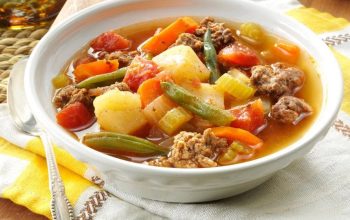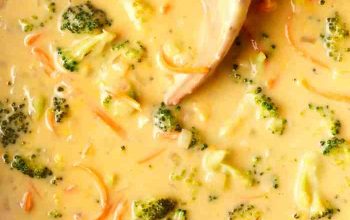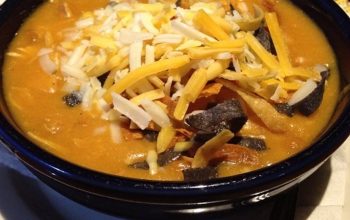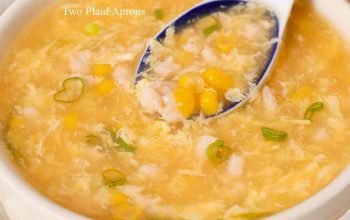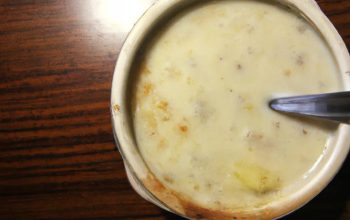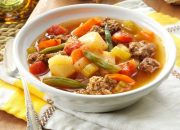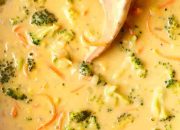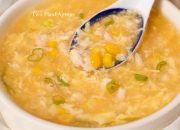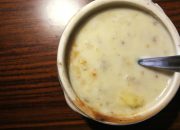Pumpkin Soup Recipe Variations
Recipe for pumpkin soup – Pumpkin soup offers incredible versatility. This section explores various recipes and flavor profiles, highlighting the differences in taste and texture achievable with different pumpkins and ingredients.
Three Pumpkin Soup Recipes
Here are three distinct pumpkin soup recipes: creamy, roasted, and vegan. Each recipe provides a unique flavor and texture experience.
| Ingredient | Quantity | Unit | Notes |
|---|---|---|---|
| Pumpkin (any variety) | 1.5 kg | kg | Peeled, seeded, and cubed |
| Onion | 1 | medium | Diced |
| Garlic | 2-3 | cloves | Minced |
| Vegetable broth | 1 L | L | Or chicken/beef broth for non-vegan versions |
| Heavy cream (creamy version only) | 1 cup | cup | – |
| Coconut milk (vegan version only) | 1 can | (400ml) | – |
| Olive oil | 2 tbsp | tbsp | – |
| Spices (to taste) | – | – | Salt, pepper, nutmeg, cinnamon |
Pumpkin Soup Flavor Variations
These variations build upon a basic pumpkin soup recipe, allowing for personalized flavor profiles.
- Spicy Pumpkin Soup: Add a pinch of cayenne pepper, a dash of chipotle powder, or some chopped jalapeños for a warming kick.
- Sweet Pumpkin Soup: Incorporate maple syrup, brown sugar, or a sprinkle of cinnamon and nutmeg for a comforting sweetness.
- Savory Pumpkin Soup: Enhance the savory notes with a tablespoon of soy sauce, a drizzle of balsamic vinegar, or some toasted pumpkin seeds.
- Creamy Pumpkin Soup with Curry: Add a teaspoon of curry powder for an aromatic twist. Coconut milk is a good addition to enhance the creaminess and complement the curry flavor.
- Roasted Pumpkin Soup with Sage: Roast the pumpkin before blending for a deeper, richer flavor. Add fresh sage leaves for an earthy aroma.
Pumpkin Variety Comparison
Different pumpkin varieties offer unique flavor and texture profiles. Butternut squash tends to be sweeter and smoother, while kabocha squash has a firmer texture and slightly nutty flavor. Using different varieties will significantly alter the overall taste and consistency of your soup.
Ingredient Exploration
Understanding the nutritional benefits of the key ingredients and the impact of substitutions enhances the overall cooking experience.
Nutritional Benefits of Key Ingredients
| Ingredient | Nutritional Benefit | Unit | Notes |
|---|---|---|---|
| Pumpkin | Rich in Vitamin A, fiber, and antioxidants | – | Supports immune function and eye health |
| Onion | Good source of Vitamin C and antioxidants | – | Boosts immunity and reduces inflammation |
| Garlic | Contains allicin, with potential antimicrobial properties | – | Supports immune function |
| Broth | Provides electrolytes and flavor | – | Type of broth impacts flavor (vegetable, chicken, beef) |
Broth Substitution Impact
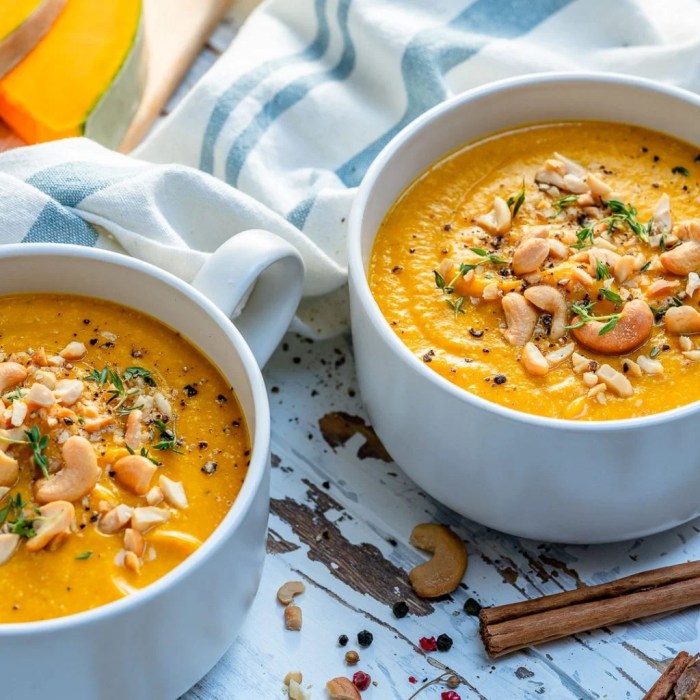
Source: blondelish.com
Using vegetable broth keeps the soup vegetarian/vegan. Chicken broth adds a richer, savory flavor, while beef broth imparts a deeper, more robust taste. The choice of broth significantly impacts the overall flavor profile.
Alternative Flavor Enhancers
These ingredients add depth and complexity to your pumpkin soup.
- Ginger: Adds a warming, spicy note.
- Apple Cider Vinegar: Provides a subtle tanginess that balances the sweetness of the pumpkin.
- Coconut aminos: Offers a savory umami flavor, suitable for vegan versions.
Cooking Methods and Techniques: Recipe For Pumpkin Soup
This section explores different cooking methods and techniques for achieving the perfect pumpkin soup.
Slow Cooker Pumpkin Soup
- Sauté diced onion and garlic in olive oil until softened.
- Add cubed pumpkin, broth, and spices to the slow cooker.
- Cook on low for 6-8 hours or high for 3-4 hours, or until pumpkin is tender.
- Blend until smooth using an immersion blender or transfer to a regular blender in batches.
- Stir in cream or coconut milk (if using) and adjust seasoning as needed.
Stovetop vs. Blender Methods
The stovetop method allows for more control over cooking and caramelizing the vegetables, resulting in a deeper flavor. Blending can be done either in a regular blender or with an immersion blender directly in the pot, offering convenience and ease of cleaning.
Achieving a Creamy Texture
For a perfectly smooth and creamy texture, ensure the pumpkin is fully cooked and tender before blending. Using an immersion blender directly in the pot avoids transferring the soup to a blender and reduces the risk of splattering. Adding cream or coconut milk after blending adds richness and creaminess.
Serving Suggestions and Garnishes
Presentation and garnishes elevate the pumpkin soup experience.
Serving Suggestions
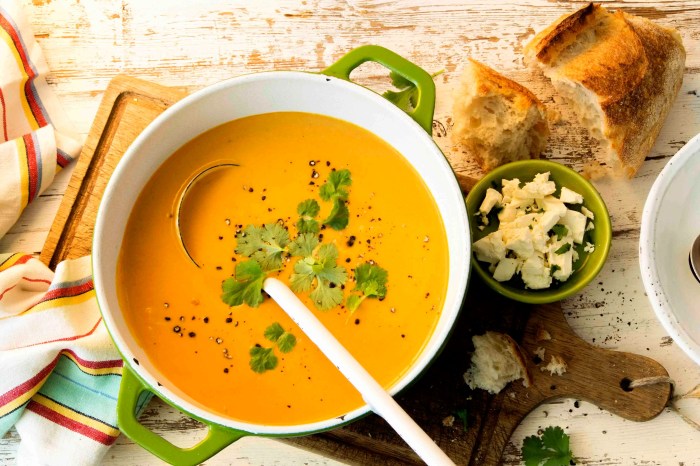
Source: com.au
- Appetizer: Serve in small, elegant bowls as a starter for a fall dinner party.
- Main Course: Pair with crusty bread or a grilled cheese sandwich for a hearty and satisfying meal.
- Side Dish: Offer alongside roasted chicken or turkey for a complete Thanksgiving or fall meal.
Garnish Options
- Toasted pumpkin seeds: Add crunch and visual appeal.
- A swirl of cream: Enhances richness and creates a visually appealing contrast.
- Fresh herbs (sage, thyme): Provide aromatic complexity and a pop of color.
- Croutons: Add texture and savory notes.
- A drizzle of olive oil: Adds a touch of richness and shine.
Visually Appealing Presentation
Serve in a warm, rustic bowl to complement the soup’s earthy tones. Consider contrasting colors in your garnishes – for example, the green of fresh herbs against the orange of the soup. A sprinkle of toasted pumpkin seeds adds texture and visual interest.
Recipe Scaling and Storage
This section details how to adjust the recipe for different serving sizes and proper storage techniques.
Recipe Scaling
To adjust the recipe, simply multiply or divide all ingredients by the desired factor. For example, to double the recipe, double the quantities of all ingredients.
Storage of Leftover Soup, Recipe for pumpkin soup
Allow the soup to cool completely before storing in airtight containers in the refrigerator. Consume within 3-4 days for optimal quality.
Freezing Pumpkin Soup
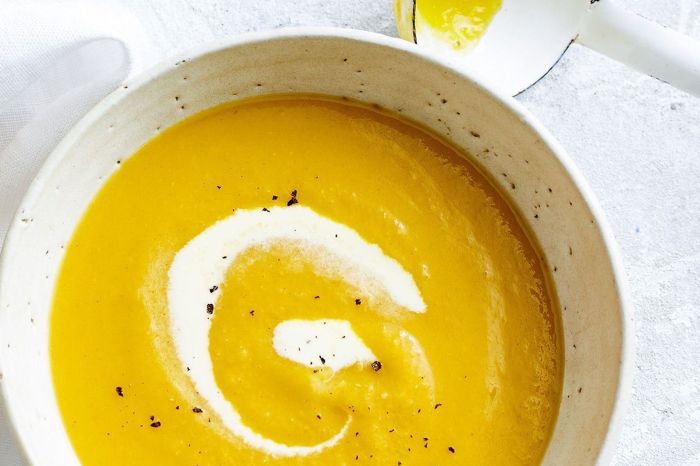
Source: com.au
- Cool the soup completely before freezing.
- Use freezer-safe containers, leaving some headspace for expansion.
- Label and date the containers.
- Freeze for up to 3 months.
- Thaw overnight in the refrigerator before reheating.
Query Resolution
Can I use canned pumpkin puree instead of fresh pumpkin?
Yes, canned pumpkin puree is a convenient substitute. However, the flavor might be slightly less intense compared to fresh pumpkin. Adjust seasonings accordingly.
How long can I store leftover pumpkin soup?
Store leftover pumpkin soup in an airtight container in the refrigerator for up to 3-4 days.
Can I make pumpkin soup ahead of time?
Yes, pumpkin soup can be made ahead of time. Allow it to cool completely before storing in the refrigerator. Reheat gently before serving.
What are some healthy additions to pumpkin soup?
Consider adding spinach, kale, or lentils for extra nutrients and fiber. A swirl of coconut milk adds creaminess and richness.


